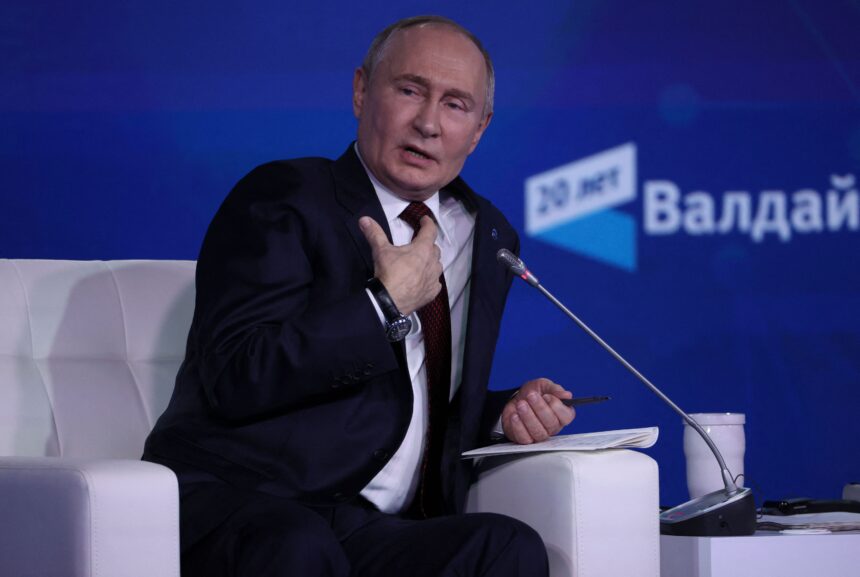MOSCOW – Russian president Vladimir Putin yesterday signed a decree broadening the scope of when Moscow can use nuclear weapons in a clear message to the West and Ukraine.
The move comes on the 1 000th day of Russia’s offensive on Ukraine, and after the United States gave Kyiv permission to use long-range missiles to strike military targets inside Russia.
The new doctrine outlines that Russia will consider using nuclear weapons against a non-nuclear state if they are supported by nuclear powers.
“Aggression by a non-nuclear state with the participation of a nuclear state is considered as a joint attack.
It was necessary to bring our principles in line with the current situation,” Kremlin spokesman
Dmitry Peskov told reporters, a clear reference to Ukraine and its Western backers.
Russia “has always viewed nuclear weapons as a means of deterrence,” he said, adding that they would only be deployed if Russia felt “forced” to respond. Putin has issued a string of nuclear threats throughout the almost three-year campaign against Ukraine, triggering concern in the West over rhetoric it has slammed as reckless.
The new doctrine also allows Moscow to unleash a nuclear response in the event of a “massive” air attack, even if it only uses conventional weapons.
When the Kremlin first unveiled the proposed changes in September, Peskov called it a “warning” against anybody who was thinking about participating “in an attack on our country by various means, not necessarily nuclear”.
Moscow’s nuclear umbrella will also be extended to its close ally Belarus under the new doctrine.
Speaking on the 1 000th day of the conflict, Peskov said the “collective West” had unleashed a “war” against Russia, pledging that Moscow would see what it calls its “special military operation” through to the end. –Nampa/AFP


